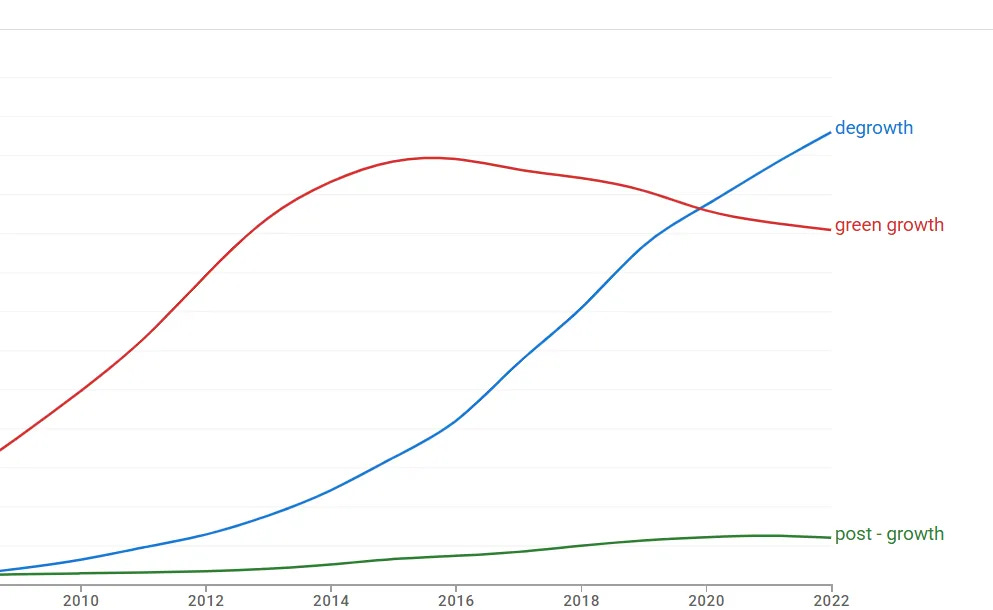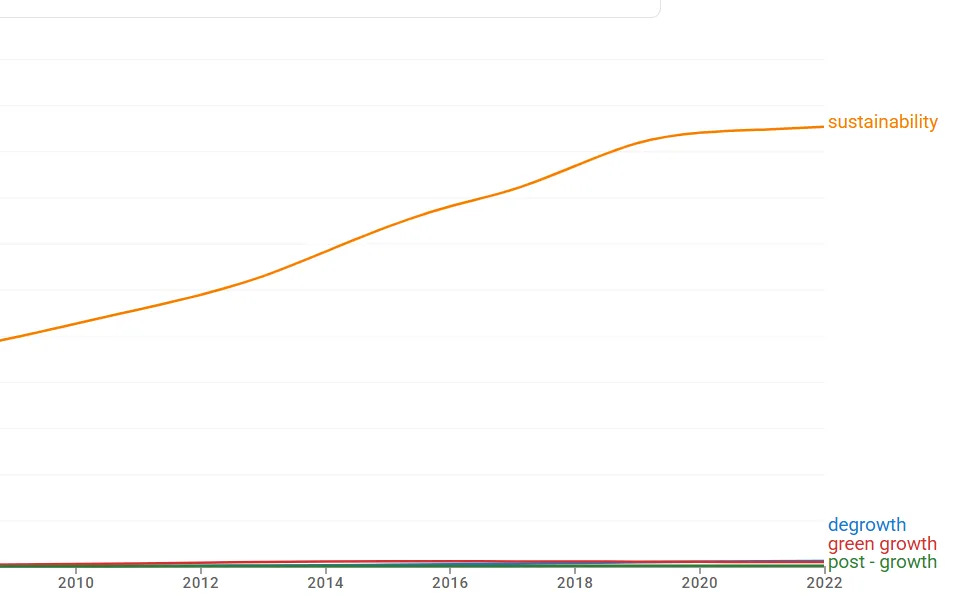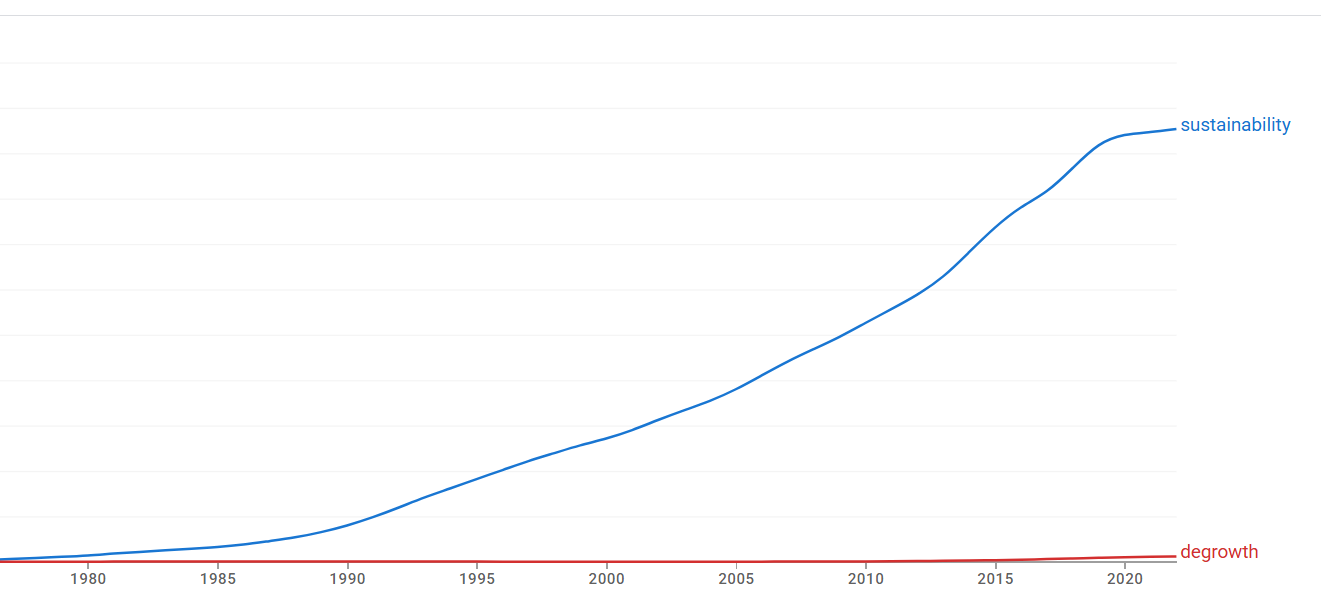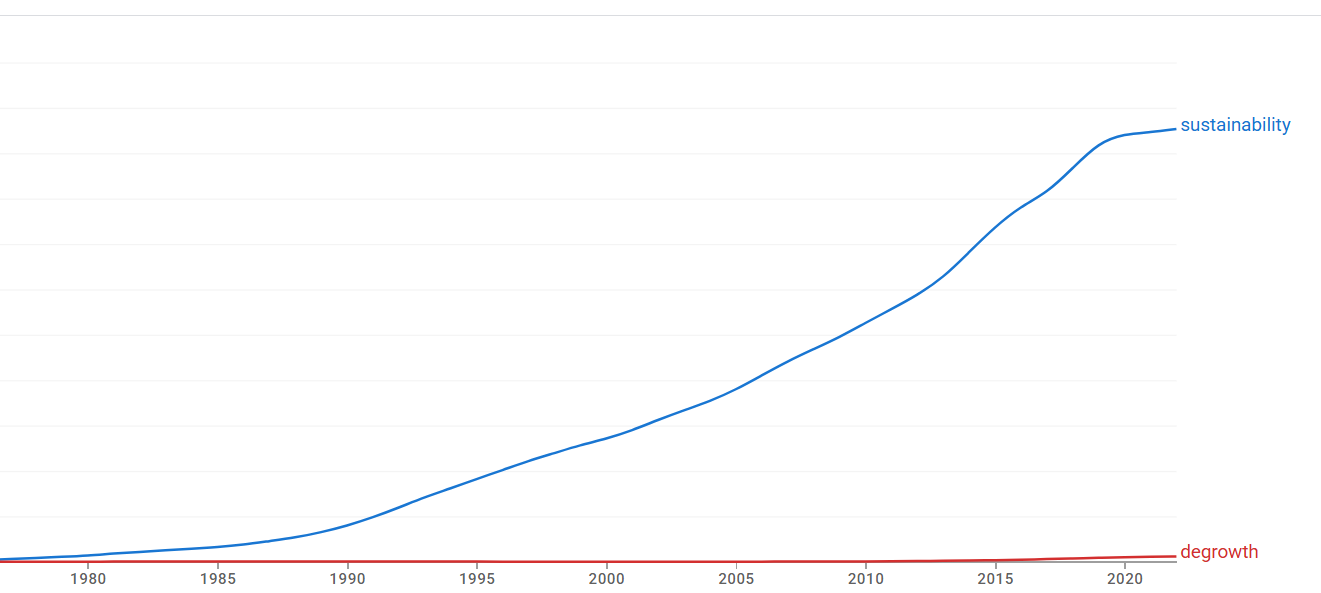No Purity Tests Please
Degrowth needs numbers. Not a pure form.
Photo by cyrus gomez on Unsplash
On Monday, I wrote about how language is important in talking about degrowth. I wanted to emphasize that because degrowth is new to most people, it is important to clearly communicate what degrowth is and isn’t as accurately as possible. This would likely include distinguishing the differences between degrowth, post-growth, wellbeing economies, doughnut economics, a-growth and other terms.
It is important to “sell” the outcomes of degrowth and not get caught up in the minutia. If you spend 30 minutes talking about how UBI (universal basic income) works to someone who simply asked you what degrowth is, you’ve likely lost them. As the saying goes, “sell the brownie, not the recipe.” People want to know what the outcome is, not how you got there. If they like the brownie (degrowth outcomes) they may ask you for the recipe, or they may not. If they like the brownie (degrowth outcomes) you’ve got them on your team.
But communicating degrowth is a different project than building a movement - which is what we are trying to do here, right?
Below is a good indicator of where we are in that movement building:
Degrowth is gaining acceptance in our culture, our economics, our policy, and in the mindshare of your average person. This data comes via Google Ngram Vieweer, and shows us the frequency of words or phrases in books published over this time. Good news right?
Sort of.
Keep that image in mind, and then compare it to this:
Degrowth still lags far behind “sustainability” in the public consciousness. So there is a long way to go to get to the point where “degrowth” is as ingrained in people’s minds as sustainability is today. We have climbed a hill, with a large mountain still ahead of us.
To get to that mountain peak degrowth has to be something that has entered the popular culture to the point that you see it on the news, in memes, your older relatives complaining about it in family gatherings and misrepresent what it is entirely in their complaints, politicians and corporations spend lots of time and money complaining about it while saying that it is ruining America - you know, where sustainability is today.
Take “sustainability” for example.
The journey of “sustainability” is instructive. The term has been around for decades, but it didn’t really start to gain momentum in the popular culture about 30 minutes ago.
As you can see, “sustainability” as a concept was really nowhere until the early 80s and then slowly built up momentum as environmental concerns began to grow in the public consciousness.
I was present at meetings in 2005 where the UN Environmental Programme Finance Initiative (UNEPFI) started an initiative that really gave sustainability a boost. These meetings resulted in the UN Principles of Responsible investment (UN PRI), which helped coin the acronym ESG (Environmental, Social, Governance). This simply meant that investors who signed up to the Principles of Responsible Investment promised to consider environmental, social and corporate governance factors in the investment process. Today, about $121 Trillion of assets around the world are said to be managed with ESG considerations.
There is a different essay to write about whether ESG has resulted in “sustainable investing” (it generally has not), but that isn’t the point here. The point is that “sustainability” and related things like “sustainable investing” are well known now. In 2005 if you went to a large 3 day financial conference, there might be one small breakout panel on sustainable investing in a small room on the third day of the conference. Today there are whole multiday conferences dedicated solely to sustainable investing, there are multinational consultancies that focus only on sustainability and politicians are running against sustainability, blaming it for everything under the sun.
That is what we want for degrowth.
We can only dream of multiple multiday conferences on degrowth that are held all over the world. Now, we just have one each year held in Europe. We can only dream of politicians blaming degrowth for all that is wrong with America. May we live to see the day.
But to get to that point, degrowth needs to navigate the hurdles that sustainability has.
Degrowth is having a moment, momentum is growing, and we need to build a big tent to get this movement going. One thing I saw in the sustainability movement that I am concerned about in the degrowth world is purity testing.
You want a big movement, not an exclusive club.
More is being written and discussed about degrowth every day by more serious people. In the last year, degrowth has been discussed in the Harvard Business Review, The New York Times, the Financial Times, a report by consultancy Ernst & Young, Triodos Bank, Jeffries Investment Bank and was the subject of a BBC documentary. There have even been negative pieces in the Washington Post, and Jacobin. The more degrowth is discussed, the more people will be brought into the fold with new ideas. This means that degrowth will inevitably change. I’m sure that will result in some hurt feelings, concerns of message drift and other concerns from those who were pioneers in the degrowth movement. Good. That’s all part of growing a movement.
That is natural. But we need to navigate through it.
There does need to be leadership in the global degrowth community, and plenty of communication among groups as the movement grows.
But for now, we should be expanding the tent. This means getting everyone into that tent that we can; from degrowthers, to bioregionalists, to futurists, to young people who are being left behind by capitalism, to those in the global South who have been left behind by the Global North, and folks in the Global North who know this system we have just doesn’t work.
Degrowth can’t be all things to these people - I’m not saying that it should be. But for the most part, people don’t even know what it is. (See below).
I haven’t been in the degrowth world as long as those who have been here for decades, but I do know a compelling story when I see one, and degrowth is that. There is a great big world out there dissatisfied with the current system, and most of them don’t know what the hell degrowth is.
Tell them.
Sell the brownie, not the recipe. Degrowth isn’t going to turn a world that has started to collapse into a Utopia, but it is a way to make that future a better one than the path we are on now. Many people are desperate for that story - but they just haven’t heard it.
Bring them into the tent and tell them.
A movement needs people.
Don’t put a bouncer at the door, when people are clamoring to get in.







Your sustainability comparison is spot on. Degrowth needs its ESG moment to go mainstream and to have that we need to stay far away from purity tests.
I think about an ad agency selling humanity on being an awesome species, made for relationships, with the warmth of community more satisfying than being surrounded by stuff.